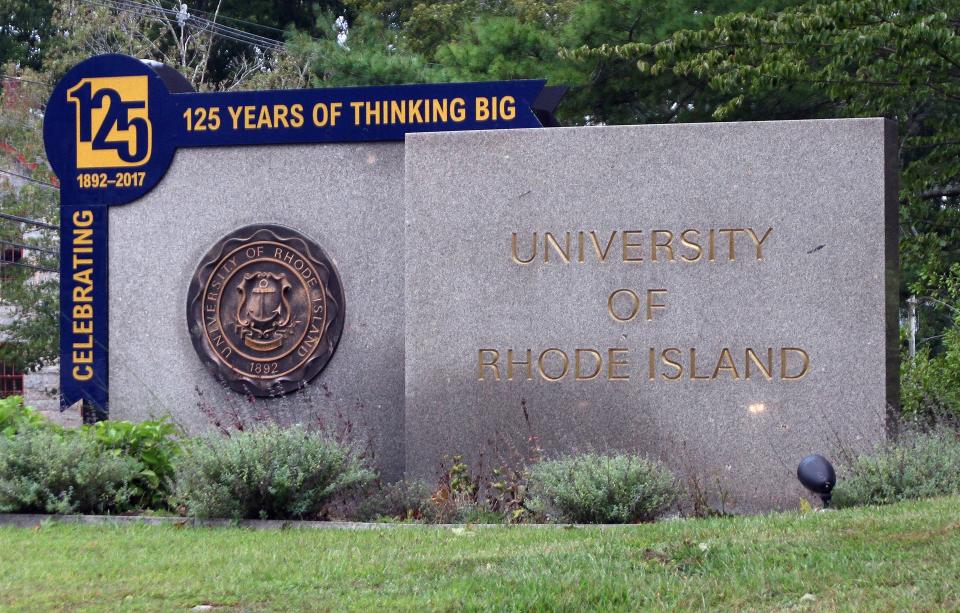URI student's lawsuit alleged URI breached contract during COVID. Why judge struck it down
PROVIDENCE — With a boom, government leaders moved to limit gatherings as COVID infections began to climb and fears soared in March 2020 during the onset of the pandemic. Colleges and universities moved classes online and closed campuses to sports activities and other gatherings.
In the months that followed, students nationwide brought lawsuits against colleges and universities, seeking refunds of tuition and fees and accusing the schools of breaching their contractual obligations to provide in-person learning and other amenities.
In Rhode Island, Johnson & Wales University, the University of Rhode Island, Brown University and Roger Williams University were all hit with lawsuits in federal court alleging that the schools had breached their contracts with students. And this week, the last of those cases was extinguished — at least in U.S. District Court — where Chief Judge John J. McConnell Jr. struck down efforts by URI students to recoup fees they had paid for activities, transportation and other services.
More:Why URI students are in the middle of Narragansett's 'neighbor against neighbor' legal fight
In a 26-page ruling, McConnell accepted URI’s reasoning that even if it had breached its contract with students, the terms would have been nullified by the “doctrines of impossibility and frustration.” In other words, the pandemic made compliance essentially impossible due to unforeseen circumstances, namely the worldwide shutdown.
The use of facilities such as Memorial Union and URI’s fitness center as gathering places was prohibited by government orders imposed early in the public-health crisis. As such, the school’s contract with its students was substantially frustrated by factors outside its control, the judge said.
Likewise, McConnell rejected the students’ arguments that the school had been unjustly enriched during the lockdown.
“[The students] claimed that they paid for in-person services but were only provided with lesser quality virtual services. … But the record shows that URI used the funds from the remaining fees (the Memorial Union and Fitness and Wellness Center Fees) to provide virtual services such as workout classes and entertainment to students,” McConnell said.

The judge noted that URI had dedicated fees for activities to paying for URI alum and magician Mat Franco to perform virtually for the students, as well as for appearances by actor Will Ferrell and writer, director and comedian Judd Apatow, known for such hit movies as "The 40-Year-Old Virgin," "Knocked Up" and "The King of Staten Island" and the television show "Freaks and Geeks."
“Before the COVID-19 pandemic, it would not have been unthinkable to have any random few guests (e.g., not a graduation speaker or guest of other such magnitude) appear virtually for various reasons such as scheduling. … Because it still provided similar services, URI’s discretionary use of these funds was therefore reasonable,” the court said.
The students had argued that the fees should have been put toward services the students could have enjoyed in person throughout the semester.
McConnell’s latest ruling follows his earlier dismissal of the students’ bid to have their tuition refunded from URI’s spring 2020 semester. It puts the case to bed unless the students appeal.
More:3 college seniors say COVID reshaped their lives, made them focus on what they really want
McConnell also struck down breach of contract claims regarding tuition against Brown, Johnson & Wales and Roger Williams universities.
The students in the Brown case appealed and reached a $1.5-million class-action settlement with the university that McConnell approved last month.
“This settlement is an exceptional result. The settlement provides automatic and certain compensation for thousands of students enrolled at Brown during the spring 2020 semester,” the lawyers representing the students wrote.
The students who brought claims against Johnson & Wales and Roger Williams universities did not appeal McConnell’s ruling.
“After careful review, the court dismissed the claims for tuition refunds, stating that 'no plausible reading of the university materials … give rise to enforceable contractual promises,'” a spokesperson for Johnson & Wales said in an email.
This article originally appeared on The Providence Journal: Judge dismisses students' COVID claims against University of RI

